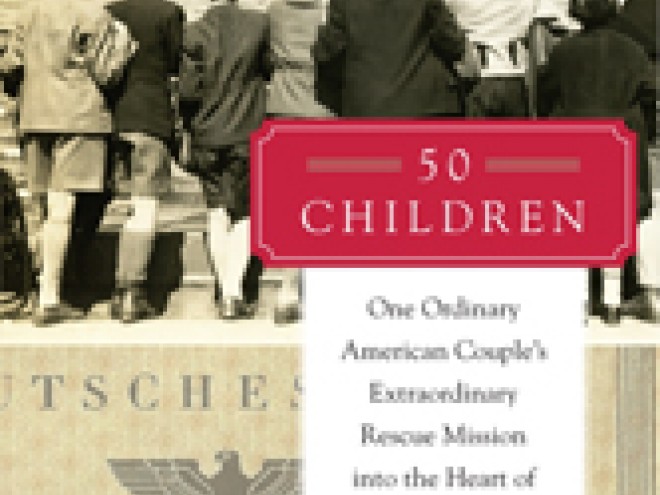 I was born in Baltimore in 1954, nine years after the Shoah, one of signature events of the 20th — or any — century. That I recall, throughout my early childhood no one in my community spoke much about it.
I was born in Baltimore in 1954, nine years after the Shoah, one of signature events of the 20th — or any — century. That I recall, throughout my early childhood no one in my community spoke much about it.
During the Israeli Bond drives of those years, the rabbi would sometimes invoke a gruesome image or two — but nothing approaching a coherent account of continent-wide anti-Semitism or the camps. We had no discussions at the dinner table or in Hebrew School and certainly none in the public school classroom. At the Jewish Community Center where I played basketball, I saw men with numbers tattooed on their forearms. I couldn’t approach these men: there was no context for that and certainly no invitation.
I was only six years old when the English translations of Primo Levi’s If This is a Man (1959) and Elie Wiesel’s Night (1960) became available in America. Later, having read them, I didn’t understand why they hadn’t moved my parents and teachers to a frank conversation of the war. Perhaps the memories were too near and raw; perhaps adults through their silence believed they were protecting us. Not even the survivors I knew, the parents of my friends, would speak. “Why remember bad times?” they’d say when the children asked.
Popular culture filled the void, and not particularly well. The Guns of Navarone (1961) pitted allied commandos against generic bad guys who happened to wear German uniforms. The Great Escape (1963) offered a mostly benign account of a POW camp. True, German soldiers gunned down the majority of those who attempted escape, but the story was about soldiers killing other soldiers who wouldn’t sit still and listen — wouldn’t play by the rules of war. In a sense, the never-say-quitattitude of the British and Yank prisoners invited the killing. There was a grim logic to that and a certain decorum and courtesy in the camp, call it a baseline respect for the human that was never shown to the prisoners of labor camps or death factories. Why didn’t the movies portray that? In 1965, Hogan’s Heroes gave us a comedy (!) set in a POW camp, its storylines variations on the mischievous play that duped the ever-clumsy German command. No one, it seemed, neither the entertainment industry nor educators, dared to take on the horror of industrial-scale murder.
All I had to work with in my struggle for understanding was the silence of adults and quasi-entertaining military action/adventure accounts of the war. What I sorely missed were innovative curricula like Facing History and Ourselves (founded in 1976) that addressed the calamity head on in public school settings. At last, by my mid-twenties, more histories and more survivor accounts were being published and televised series like Holocaust (1978) brought realism to the subject. By that point my war-related anxieties were already established. I had filled in blanks not with information but with nightmares of snarling dogs and men in jackboots hauling people off into the night.
Little wonder that these anxieties surfaced decades later in my writing. Many Jewish artists find themselves reckoning with the events in Europe seventy years ago, whether or not they lived through them. My reckoning came in The Tenth Witness, a novel set in 1978 about the legacy of national socialism. I follow a character who falls in love with the daughter of a man who made steel for the Reich. Why? I  suppose I wanted to get as close to the beast as I could to study it — in a context I understood, the 70s, when there were still plenty of former Nazis walking the streets of Munich and Buenos Aires. The woman fascinated me. She was innocent, though her father wasn’t. Still, did she need forgiving for merely having been born German, or born to parents implicated in war crimes? What does forgiveness look like in the context of the Shoah? How do the sins of parents weigh on children? What does a child learn from a father who used slave labor? Is that child somehow tainted? These questions confused my teenage years, and only decades later did I gain perspective enough to wrestle with them.
suppose I wanted to get as close to the beast as I could to study it — in a context I understood, the 70s, when there were still plenty of former Nazis walking the streets of Munich and Buenos Aires. The woman fascinated me. She was innocent, though her father wasn’t. Still, did she need forgiving for merely having been born German, or born to parents implicated in war crimes? What does forgiveness look like in the context of the Shoah? How do the sins of parents weigh on children? What does a child learn from a father who used slave labor? Is that child somehow tainted? These questions confused my teenage years, and only decades later did I gain perspective enough to wrestle with them.
Doubtless, my parents and teachers thought they were doing right by sparing children details of the Shoah. We take another view these days, and that’s a good thing because their silence proved a burden.
No one counted on that.Leonard Rosen lives and works in the Boston area. He has contributed radio commentaries to Boston’s NPR station, written best-selling books on writing, and taught writing at Harvard University. Learn more about him and his work at www.lenrosenonline.com.
Leonard Rosen lives and works in the Boston area. He has contributed radio commentaries to Boston’s NPR station, written best-selling books on writing, and taught writing at Harvard University. His just published The Tenth Witness (Sept. 2013) is a prequel to All Cry Chaos, a much-praised award winner in both the literary and mystery/thriller categories. Both feature Interpol agent Henri Poincaré, “a protagonist,” wrote one critic, “who reads like a literary figure in a thriller.” Learn more at www.lenrosenonline.com.



